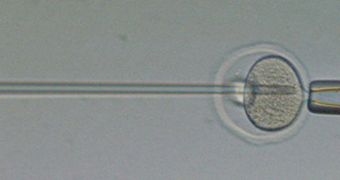The recipient of the Nobel Prize in psychology or medicine for this year has finally been revealed, announce those in charge of distributing the prestigious scientific awards.
The Prize will be given to British researcher Robert Edwards, who is responsible for pioneering in-vitro fertilization (IVF), an assisted reproduction technique that led to 4 million births since 1978.
This is a very important recognition for the expert, to whom numerous happy parents are thankful, and who is indirectly responsible for so many lives that got a chance to happen.
What this technique did was basically provide couples that would have otherwise remained infertile with a chance to have babies of their own, by following a relatively simple procedure.
Infertility appears when the male and female reproduction cells fail to meet and unite within a mother-to-be. IVF, as its name implies, proposes an artificial solution to this problem.
Women who want to have children, but cannot, are subjected to a treatment plan which has them taking hormones that boost egg production. After this happens, the actual IVF procedure begins.
Doctors harvest some of these eggs from the woman, and then take sperm from a donor to fertilize them. After this takes place, the fertilized eggs, also called embryos, are implanted back into the woman's uterus.
If this procedure is successful, then the woman becomes pregnant, and gives birth nine months later. At this point, IVF is a rather common procedure, but it was a great achievement when it appeared.
Edwards and gynecologist Patrick Steptoe have been involved in research on in-vitro fertilization since the 1950s. They first managed to achieve all the necessary steps for IVF in the 1960s.
The most important parts of the work were carried out at the University of Cambridge, and at hospitals in Oldham, the United Kingdom. The first IVF baby was born in Oldham in 1978.
The Nobel committee awarded Edwards alone with the prize, because Steptoe passed away some time ago, in 1988. Nobel prizes are not awarded posthumously, the committee says.
Edwards “was a man much ahead of his time not just in IVF, but in pre-implantation genetic diagnosis, the derivation of embryonic stem cells and also for his publications and lectures on ethics in science and the role of regulation,” explains Martin Johnson.
He is a reproductive sciences expert at the University of Cambridge. The Nobel committee says that the prize is currently worth about $1.5 million, Wired reports.

 14 DAY TRIAL //
14 DAY TRIAL //